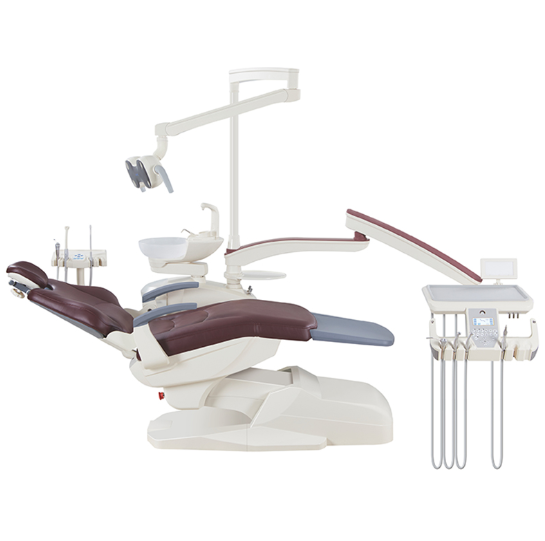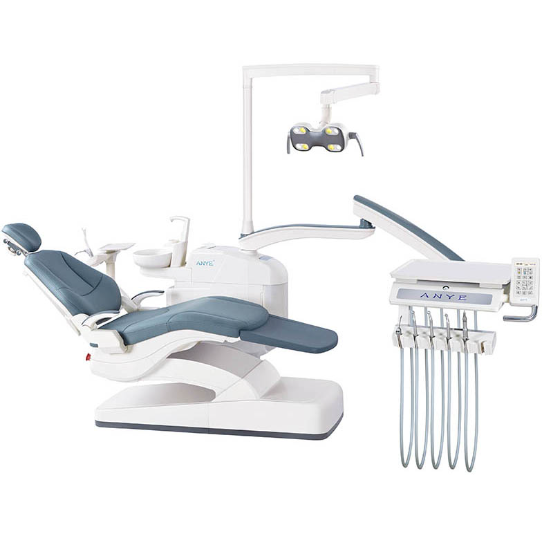How to Choose Dental Compressor for Dental Unit?
A dental compressor is the unsung hero of any dental practice, silently powering the tools that ensure efficient, safe, and comfortable dental procedures.
However, choosing the right dental compressor isn't a decision to be taken lightly. It requires careful consideration of various factors to ensure it aligns perfectly with the needs of your practice.
However, choosing the right dental compressor isn't a decision to be taken lightly. It requires careful consideration of various factors to ensure it aligns perfectly with the needs of your practice.
What are Dental Compressors?
Before diving into the selection process, let's understand the significance of a dental compressor. This crucial component of a dental unit functions by providing the compressed air necessary to operate a myriad of dental instruments, including drills, suction devices, and handpieces. Essentially, it's the heartbeat of the dental setup, ensuring seamless functionality during procedures.
Types of Dental Compressors
Knowing the types of dental compressors are important, because they may determine the quality of the outputted air.
●Oil-Free Compressors: These compressors utilize advanced technology to deliver clean, contaminant-free air, making them ideal for sensitive dental procedures. They eliminate the risk of oil contamination, ensuring a sterile environment for patients.
●Oil-Lubricated Compressors: While these compressors are efficient, they require diligent maintenance to prevent oil-related contamination. Regular oil changes and upkeep are essential to maintain air quality standards.
●Noiseless Compressors: These compressors are engineered specifically to operate quietly, minimizing disruptions in the dental office. However, balance the noise reduction feature with the compressor's performance and associated costs.
●Oil-Free Compressors: These compressors utilize advanced technology to deliver clean, contaminant-free air, making them ideal for sensitive dental procedures. They eliminate the risk of oil contamination, ensuring a sterile environment for patients.
●Oil-Lubricated Compressors: While these compressors are efficient, they require diligent maintenance to prevent oil-related contamination. Regular oil changes and upkeep are essential to maintain air quality standards.
●Noiseless Compressors: These compressors are engineered specifically to operate quietly, minimizing disruptions in the dental office. However, balance the noise reduction feature with the compressor's performance and associated costs.
Factors to Consider When Choosing a Dental Compressor
In this section, the author would list the main factors when you choose a dental compressor.
Air Quality
Maintaining a high standard of air quality is paramount in dental procedures. Compressors that boast advanced filtration systems and guarantee oil-free air play a pivotal role in preventing cross-contamination and safeguarding patient health. Look for models equipped with multi-stage filtration to ensure the air is free from moisture, debris, and microbial agents.
Performance and Airflow
Understanding the specific demands of your dental practice is crucial when assessing a compressor's performance capabilities. For instance, if your practice frequently utilizes high-demand tools like dental handpieces, scalers, or air abrasion systems simultaneously, selecting a compressor with adequate airflow and consistent pressure output is imperative. Opt for models that offer adjustable pressure settings to accommodate various procedural needs.
Noise Level
Creating a serene environment is essential to patient comfort. Lower noise levels not only contribute to a peaceful setting but also benefit dental practitioners by reducing noise-related stress during lengthy procedures. Consider compressors designed with noise-reduction technology to maintain a tranquil atmosphere without compromising on performance.
Size and Portability
The physical footprint of the compressor and its portability are essential considerations. Assess the available space in your practice and whether a stationary or portable compressor best suits your operational needs. Portable models can offer flexibility, allowing you to move the compressor between treatment rooms or even for off-site procedures.
Maintenance and Durability
Regular maintenance is vital to ensuring the longevity and efficiency of a dental compressor. Opt for models with easily accessible components for routine maintenance tasks like filter changes and inspections. Additionally, prioritize durable compressors constructed with high-quality materials to minimize downtime and potential disruptions in your practice.
Budget Considerations
Finding the right balance between features and budget is crucial. While higher-quality compressors may have a higher upfront cost, they often offer greater reliability and reduced maintenance expenses over time. Consider the long-term value and potential cost savings when investing in a compressor.
Consulting with Professionals
Engage with dental equipment specialists or experienced professionals to gain tailored insights into your practice's unique requirements. Their expertise can help you navigate through various compressor options and select the most suitable one for your practice.
Conclusion
Choosing the right dental compressor requires a comprehensive evaluation of factors such as air quality, performance, noise levels, maintenance needs, and budget considerations. By carefully assessing these factors and seeking expert guidance, dental practices can ensure optimal efficiency, safety, and quality in their procedures.



Leave a comment